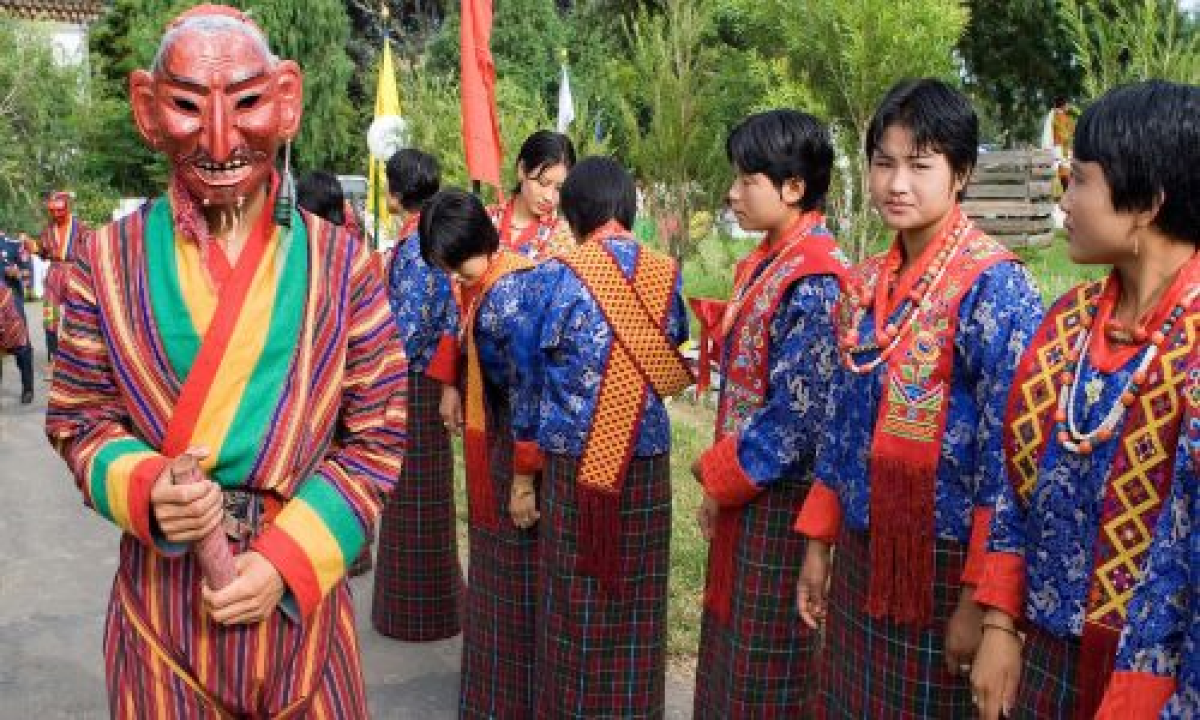Thimphu Tsechu was initiated by the 4th Druk Desi (secular ruler of Bhutan), Gyalse Tenzin Rabgay in the 17th century. In the 1950s some changes were introduced in Thimphu Tshechu by the 3rd King of Bhutan, Jigme Dorji Wangchuck.
Tshechus are popular and colourful events where the entire community comes together to watch religious mask dances, receive blessings and socialise. As well as the famous mask dances, tshechus also include colourful Bhutanese folk dances and other forms of entertainment.
As befits the largest city in Nepal, the Thimphu festival is very popular and thousands of people from all over Bhutan will visit during the three days of the festival.
Thimphu Tshechu is held at Tendrel Thang, the grounds in front of Tashichhoedzong (Buddhist monastery). Buddhist monks perform the mask dances known as cham to bless onlookers, to teach them the Buddhist dharma, to protect them from misfortune and to exorcise all evil. It is believed that merit is gained by attending these festivals and it is expected that everyone attends a Tschechu to wash away their sins.
The sacred Thongdrol (image) of Guru Rinphoche (an 8th-century Buddhist master, venerated as a “second Buddha” in Tibetan Buddhism.) is unfurled early in the morning on the last day of Thimphu Tshechu to bring blessings to all who view it.
The tshechu is preceded by several days and nights of prayer and rituals to invoke the gods. It even has its own pre-festival, Thimphu Drupchen, which takes places three days before Thimpu Tschechu.
